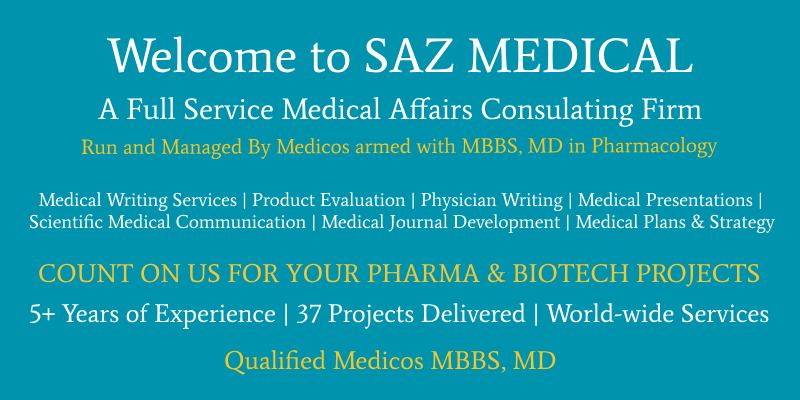Clinical Writing Services
In the intricate tapestry of the healthcare and pharmaceutical industries, effective communication is the linchpin that connects scientific discovery with regulatory compliance and public understanding. Within this realm, the roles of clinical and nonclinical medical writing services are indispensable. This article delves into the significance of these services, exploring how they contribute to the seamless flow of information in both clinical research and nonclinical domains.

Clinical Medical Writing Services: A Pillar of Scientific Communication Clinical medical writing services encompass a broad spectrum of activities crucial for the development, documentation, and communication of clinical research. From the initiation of clinical trials to the submission of regulatory documents, these services play a pivotal role in ensuring that the findings and processes are accurately and comprehensively communicated.
Protocol Development: The inception of a clinical trial hinges on a meticulously crafted protocol. Clinical medical writing services collaborate with researchers and study sponsors to articulate the study’s objectives, design, methodology, and ethical considerations. This foundational document serves as the roadmap for the entire trial. Clinical Study Reports (CSRs): As the culmination of a clinical trial, the CSR is a comprehensive document that narrates the study’s journey from initiation to conclusion. Medical writing services specializing in clinical research excel in translating complex data into a cohesive narrative, ensuring regulatory compliance and facilitating the dissemination of research findings.
Regulatory Submissions: Navigating the regulatory landscape demands precision and adherence to stringent guidelines. Clinical medical writing services assist in the preparation of regulatory submissions, including Investigational New Drug (IND) applications, New Drug Applications (NDAs), and Marketing Authorization Applications (MAAs). This expertise ensures that submissions meet the criteria set by health authorities.
Patient Informed Consent Forms (ICFs): Ethical conduct of clinical trials necessitates transparent communication with study participants. Medical writers specialize in crafting Patient Informed Consent Forms, ensuring that participants comprehend the study’s objectives, potential risks, and benefits before providing consent.
Clinical Manuscript Writing: Disseminating research findings through peer-reviewed journals is a critical aspect of the scientific process. Clinical medical writing services aid researchers in transforming trial data into manuscripts suitable for publication, contributing to the wider scientific discourse.
Non Clinical Writing Services
While clinical medical writing services focus on the intricacies of human trials, nonclinical medical writing services cater to a broader spectrum, including preclinical research, regulatory documents for medical devices, and a variety of scientific communications. Before a potential therapeutic intervention reaches human trials, it undergoes rigorous preclinical testing. Nonclinical medical writing services are instrumental in documenting these studies, producing reports that detail the safety and efficacy of the intervention in animal models. Effective communication of scientific concepts is vital for collaboration and knowledge dissemination. Nonclinical medical writers excel in translating complex scientific information into accessible content for diverse audiences, including researchers, clinicians, and the general public. In the post-marketing phase, nonclinical medical writers assist in the development of REMS documents. These strategies aim to mitigate known or potential risks associated with a pharmaceutical product, enhancing patient safety. Medical devices often require Clinical Evaluation Reports to demonstrate their safety and performance. Nonclinical medical writing services play a vital role in compiling and presenting relevant clinical data to support these reports. The collaboration between clinical and nonclinical medical writing services is not only beneficial but often necessary for the success of a healthcare intervention. Consider a scenario where a novel therapeutic undergoes preclinical testing, transitions into human trials, and eventually seeks regulatory approval. In this journey, seamless communication is paramount, and the handover between clinical and nonclinical medical writing services ensures continuity and coherence in documentation. Regulatory bodies demand consistency and accuracy in documentation throughout the development and approval process. A unified approach by clinical and nonclinical medical writers ensures that regulatory submissions maintain a cohesive narrative, enhancing the likelihood of successful approvals.
Holistic Communication: For pharmaceutical companies, conveying a comprehensive narrative that encompasses both the preclinical and clinical aspects of a healthcare intervention is crucial. The synergy between clinical and nonclinical medical writing services enables the creation of documents that tell a cohesive story, from early testing to regulatory approval
The Future Landscape: Evolving Trends in Medical Writing Services As the healthcare and pharmaceutical industries continue to evolve, so do the demands on medical writing services. Several trends are shaping the future landscape of these services.
Digital Transformation: The integration of technology into medical writing processes is becoming more prevalent. From electronic submission of regulatory documents to the use of artificial intelligence in data analysis, medical writing services are embracing digital tools for efficiency and accuracy.
Focus on Patient-Centric Communication: There is a growing emphasis on patient-centric communication in both clinical and nonclinical contexts. Medical writing services are adapting to this trend by developing materials that prioritize clarity and accessibility for a diverse audience, including patients and their caregivers.
Globalization and Diverse Regulatory Landscapes: With an increasing number of multinational clinical trials and global market expansion, medical writing services must navigate diverse regulatory landscapes. The ability to adapt to different regulatory requirements and ensure consistency across documents is becoming a hallmark of proficient medical writing services.
Interdisciplinary Collaboration: The complexity of modern healthcare interventions demands collaboration between various disciplines. Medical writing services are increasingly engaging in interdisciplinary collaboration, working closely with scientists, clinicians, statisticians, and regulatory affairs professionals to create holistic and integrated documents.
Conclusion: Enabling Progress through Precision In the dynamic and complex spheres of clinical and nonclinical research, the role of medical writing services is foundational. The meticulous crafting of documents, from protocols and clinical study reports to preclinical summaries and regulatory submissions, is the cornerstone of effective communication. The symbiotic relationship between clinical and nonclinical medical writing services ensures that the journey of a healthcare intervention, from concept to market, is documented with precision, adherence to regulatory standards, and a commitment to transparent and accessible communication. As these services continue to evolve in response to technological advancements and shifting industry demands, their impact on the advancement of healthcare and pharmaceutical innovation is set to become even more profound.